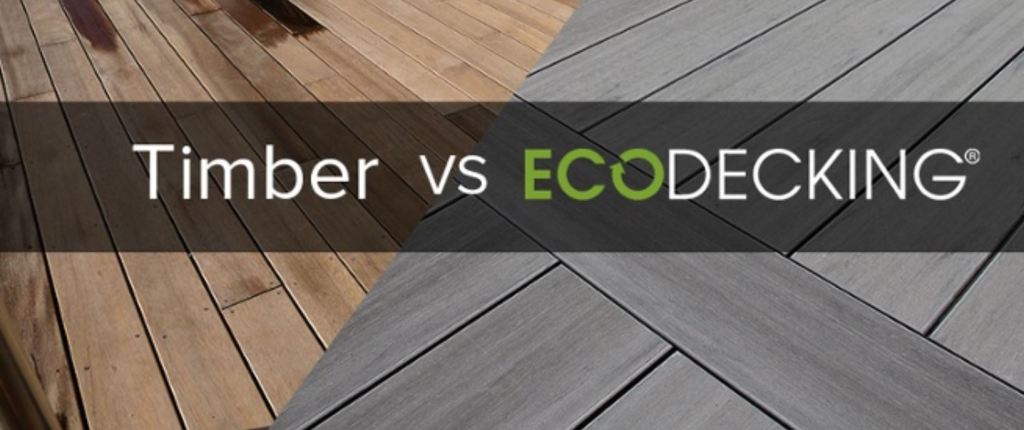Composite decking is generally considered the more environmentally sustainable option. Although hardwood timber decking is a more natural product, it takes many years for a forest to reach full maturity again once lumbered. Composite decking however, is made using a percentage of recycled plastics, manufactured plastics and hardwood wood chips and fibres. If it is environmental conservation that is your priority, then composite decking is the product for you. Composite decking also provides an even colour tone and length due to it being a manufactured product. Hardwood timber decking may have imperfections in the grain, also the colour may vary slightly between each board. Depending on your taste, this may or may not be a good thing. Although hardwood timber decking does not have the same consistency as composite decking, some people will agree that this only adds to its natural appearance, and the knots and inconsistent colour tell the story of the timbers life line, and this character can not be replicated in a manufactured product. Natural hardwood timber also provides a warmth that composite decking can not.
When it comes to home safety, Hardwood timber decking can become quite slippery when wet. Composite decking however, has a non slip surface.Composite decking also has the advantage of not splintering.
Composite decking is generally manufactured for an easy installation with a concealed fixing finish. Hardwood timber is traditionally fixed together with stainless steel screws. A concealed fixing system can also be applied to hardwood timber although the installation process would be slightly more labour intensive that the process for composite decking.
One of the biggest deciding factors in choosing your timber decking material would be time management for the maintenance required. While a hardwood timber deck may provide you with all the benefits that natural timber has to offer, you must be prepared for the maintenance that comes with it. As the proud new owner of a hardwood timer deck you will be required to regularly clean and oil your hardwood timber deck and occasionally possibly have to re-fix a few boards here and there due to general expansion.The climate that you live in could have an impact of the expansion of your hardwood timber deck. Composite decking only requires minimal cleaning done just as you would general maintenance. Unfortunately composite decking can be prone to grow mould.
As far as cost goes, composite decking will be the more expensive option. Although hardwood timber decking prices have risen over the years due to stricter exporting laws and general availability, composite decking still remains to be the more costly approach.
When making a decision to chose composite decking or natural hardwood timber decking, the choice is a personal one. Both have their pros and cons and in the end you as the homeowner, need to be happy with your choice.Take into consideration, the area that the material will be used in, for example, will the deck be a high traffic area used for regular entertaining , cooking etc. To decide which product will be most durable for your required purpose. Also consider how much spare time do you have to dedicate to maintenance and finally and most importantly of all is your budget. How much money do you have to spend on the project and exactly how do you want to disperse the funds. If an outdoor fireplace, top range BBQ or pergola are more important to your needs, then you may not wish to allocate a large chunk of your budget into composite decking.

